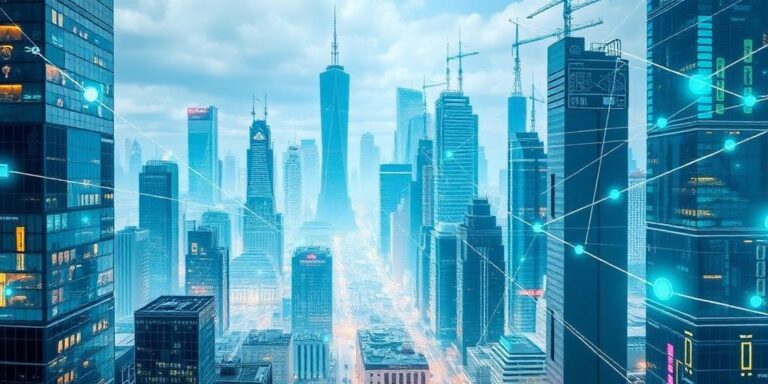Preparing for a Future Dominated by IoT (Skills, Policies – 2025)
The Internet of Things (IoT) is rapidly transforming our world, connecting devices and systems in ways that were once unimaginable. As we move closer to 2025, it’s crucial to understand the implications of an IoT-dominated future and how to prepare for it. This involves identifying the necessary skills, understanding evolving policies, and anticipating the challenges and opportunities that lie ahead.
The Proliferation of IoT Devices
By 2025, the number of IoT devices is projected to reach tens of billions, encompassing everything from smart home appliances and wearable technology to industrial sensors and autonomous vehicles. This widespread adoption will generate massive amounts of data, creating both opportunities and challenges for individuals, businesses, and governments.
Essential Skills for an IoT-Driven World
To thrive in an IoT-dominated future, individuals will need to acquire new skills and adapt existing ones. Some of the most critical skills include:
- Data Analytics: The ability to collect, process, and interpret the vast amounts of data generated by IoT devices will be essential for making informed decisions and identifying trends.
- Cybersecurity: As more devices become connected, the risk of cyberattacks increases. Cybersecurity professionals will be in high demand to protect IoT systems and data from malicious actors.
- Software Development: Creating and maintaining the software that powers IoT devices and applications will require skilled developers with expertise in embedded systems, cloud computing, and mobile development.
- Network Engineering: Designing, implementing, and managing the networks that connect IoT devices will be crucial for ensuring reliable communication and data transfer.
- Artificial Intelligence (AI) and Machine Learning (ML): AI and ML algorithms can be used to analyze IoT data, automate tasks, and improve the performance of IoT systems. Professionals with expertise in these areas will be highly sought after.
Evolving Policies and Regulations
As IoT technology continues to evolve, governments and regulatory bodies will need to develop policies and regulations to address the challenges and opportunities it presents. Some key policy areas include:
- Data Privacy: Protecting the privacy of individuals whose data is collected by IoT devices will be a major concern. Policymakers will need to establish clear guidelines for data collection, storage, and use.
- Cybersecurity Standards: Setting minimum cybersecurity standards for IoT devices will be essential for preventing cyberattacks and protecting critical infrastructure.
- Interoperability: Ensuring that IoT devices from different manufacturers can communicate with each other will be important for fostering innovation and competition.
- Liability: Determining who is liable when an IoT device malfunctions or causes harm will be a complex legal issue. Policymakers will need to establish clear rules for assigning liability.
- Ethical Considerations: Addressing the ethical implications of IoT technology, such as bias in AI algorithms and the potential for surveillance, will be crucial for ensuring that IoT is used in a responsible and beneficial way.
Challenges and Opportunities
The rise of IoT presents both significant challenges and exciting opportunities. Some of the key challenges include:
- Security Risks: IoT devices are often vulnerable to cyberattacks, which can have serious consequences.
- Privacy Concerns: The collection and use of personal data by IoT devices raises privacy concerns.
- Complexity: IoT systems can be complex and difficult to manage.
- Interoperability Issues: IoT devices from different manufacturers may not be compatible with each other.
- Ethical Dilemmas: IoT technology raises ethical questions about surveillance, bias, and autonomy.
Despite these challenges, IoT also offers tremendous opportunities:
- Increased Efficiency: IoT can help businesses and individuals optimize processes and reduce costs.
- Improved Decision-Making: IoT data can provide valuable insights that lead to better decisions.
- Enhanced Productivity: IoT can automate tasks and free up humans to focus on more creative and strategic work.
- New Products and Services: IoT can enable the creation of new products and services that improve people’s lives.
- Better Healthcare: IoT can be used to monitor patients’ health, improve treatment outcomes, and reduce healthcare costs.
Preparing for the Future
To prepare for a future dominated by IoT, individuals, businesses, and governments should take the following steps:
- Invest in Education and Training: Individuals should acquire the skills needed to thrive in an IoT-driven world.
- Develop Cybersecurity Strategies: Businesses should implement robust cybersecurity measures to protect their IoT systems and data.
- Establish Data Privacy Policies: Organizations should develop clear policies for data collection, storage, and use.
- Support Open Standards: Governments should promote the development of open standards for IoT interoperability.
- Address Ethical Concerns: Stakeholders should engage in discussions about the ethical implications of IoT technology.
Conclusion
The Internet of Things has the potential to transform our world in profound ways. By understanding the skills, policies, challenges, and opportunities associated with IoT, we can prepare for a future where interconnected devices improve our lives and drive innovation across industries. As we approach 2025, it is imperative to proactively address the evolving landscape of IoT to harness its full potential and mitigate its risks.



